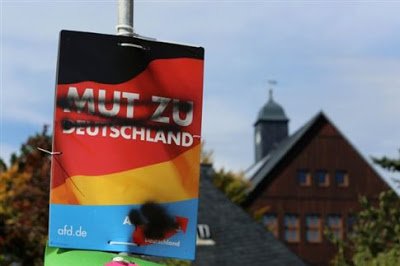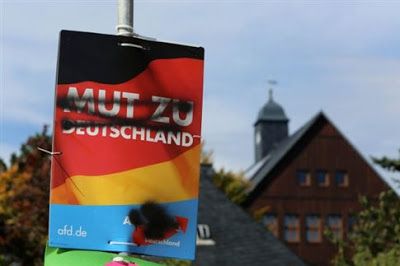The Social Democrats (SPD) of Martin Schultz, Germany's second largest party, have stated they will not join the ruling coalition with Angela Merkel's Christian Democratic Union (CDU). Most likely, the reason is the avoidance of the neo-nationalist party Alternative for Germany (AfD) becoming the official opposition of the German Federal Parliament.
In any case, the SPD leaves Merkel with only one choice: to lead a tripartite coalition between her conservative party and two smaller parties, the Liberals of the Free Democratic Party (FDP) and the Greens. This collaboration is called "Jamaica Coalition", a name derived from the colors of the three parties that correspond to the colors of the Jamaican flag.
The presence of the Liberals in Merkel's coalition will be a major obstacle to French President Emanuel Macron's ambitious reform agenda in terms of European integration as their leader, Christian Lindner, has rejected French plans to deepen European It will certainly be difficult for Greece as well, since it has demanded that our country leave the Eurozone. In fact, the FDP has set as a condition of cooperation with Mrs. Merkel to take over the Ministry of Finance, with what this may imply for the future of Greek economic programs.
Of course, all this has been said, in the run-up to the election, but it is the beginning of a new political approach by Germany. The new government must maintain the balance between the members of the governing coalition but also not stimulate the National Socialist reflexes of the society at the expense of the further rise of the pro-Nazi, neo-nationalist AfD party.
At present, the democratic forces in the German Parliament who believe that only the political superstructure of the European Union guarantees the peace and prosperity of European citizens in the networked domination of the global market economy in a world where technology is evolving rapidly and population is growing rapidly. garner overwhelmingly more votes from populist forces such as the AfD and the left-wing Die Linke.
The former is openly against the European vision and Linke is pro-European, but at the same time, his program deconstructs the quintessence of the value of liberalism such as the measured state intervention in the lives of citizens, respect for the status of free citizen and the individual property. The value core, that is, the functioning of the European Union which differentiates it from totalitarian regimes.
At this stage, it is not so much the presence of pseudo-pro-European forces that stands in the way of European unification as the dynamic influence of the AfD, which forced the SPD not to ally with the CDU by allowing the Liberals to take their place. It is the "centrist" behavior of the Liberals who, at least in words, want neither the creation of a US-style federal Europe nor the dissolution of the European Union, is what will probably force Merkel to pursue a more moderate policy on European unification and, perhaps, to overthrow part of the French president's plans.
Source: in.gr

